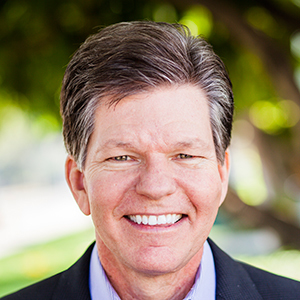
Popular christian teachers, books, articles and websites have been ringing alarm bells about the loss of young people from evangelical churches in North America — losses even from some of the most devoted and conservative congregations. But few have gathered and set forth the numbers to show that this concern is much more than anecdotal. And if it’s true that significant losses are occurring, even fewer have done any research on what a primary cause might be, and still fewer on what might work to stem the losses and turn it around.
In this brief essay we try to answer three basic questions using the very best social scientific data at our disposal — including research done by the co-author of this article, Larry Barnett of the Next Generation Project (NGP). These questions are immensely important to the future of the Christian faith and the well-being of our young people:
- Are our young people truly drifting away from the faith? Yes.
- Do serious intellectual doubts play a role in that? Yes.
- And, can thoughtful and persuasive responses to those intellectual doubts go a long way toward keeping the losses from occurring? Yes.
Losses. The data show that compared to the 1970s, evangelicals now have two to three times the loss rate among young adults raised in their churches. Over the past 30 years, American Christianity has experienced substantial decline, especially, but not exclusively, among younger Americans. Those born after 1980 (millennials) are one- third less likely than their grandparents to be evangelical Christians.
The role of intellectual doubts. Research by the NGP and Barna Group have identified “doubts” as one of the primary reasons that millennials raised as Christians disconnect from Christianity. David Kinnaman has concluded that “unexpressed doubt is one of the most powerful destroyers of faith.” In three independent studies, NGP researchers found that doubts were associated with greater risk of leaving Christianity and with poorer spiritual health. Those with more doubts felt distant from God, prayed less frequently and attended church less frequently. The impact of doubts fully accounted for the higher drift- away rates among younger Americans, and doubt had a stronger impact on overall spiritual health than any other of several hundred factors examined.
The power of answering questions and addressing doubts. If intellectual doubts play that big a role, one would expect that effectively addressing doubt should produce stronger, healthier faith in their members. The most recent phase of research by the NGP puts this claim to the test and provides strong objective confirmation.
Young people who said their congregation did an excellent job at answering their questions about the faith were much stronger spiritually when re-interviewed five years later. At the end of the study, young people from churches that excelled at reasonable, objec- tive answers to their questions had much better spiritual outcomes. They were much more likely to have made a personal faith commitment and be actively engaged in the Christian faith. And they were much less likely to have doubts about God or to describe themselves as atheists, agnostics or non-religious. Compared to youth from other congregations, they were much more likely to attend services weekly, pray and read Scripture daily, and gladly share their faith with others. They were much more likely to believe Jesus Christ is the Son of God risen from the dead. Finally, they were much more likely to report that their faith was an extremely important aspect of their lives and that they had an “extremely close” personal relationship with God.
Apologetics is of the utmost importance. These three findings highlight the wisdom of the Apostle Peter when he commanded followers of Christ to “be prepared always to give an answer” (1 Pet. 3:15). The findings also make a strong case for the critical importance of apologetics for the church in the current generation. Doubts are everywhere. Almost all of us have them. And when not properly addressed, they can be spiritually disastrous. By contrast, faithfully answering questions and providing strong evidence for the truth of the Christian faith can have dramatic positive effects on the spiritual lives of others, especially our young people.
Craig Hazen is the founder and director of Biola’s M.A. program in Christian apologetics and director of the M.A. program in science and religion. Larry Barnett is the principal investigator with the Next Generation Project (projectnextgen.org).
 Biola University
Biola University
.jpg)

